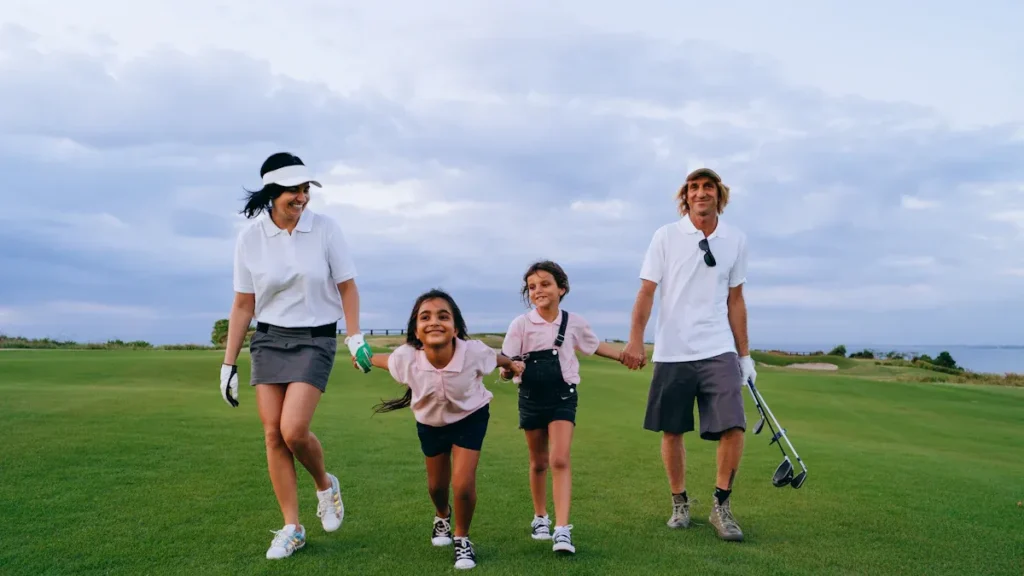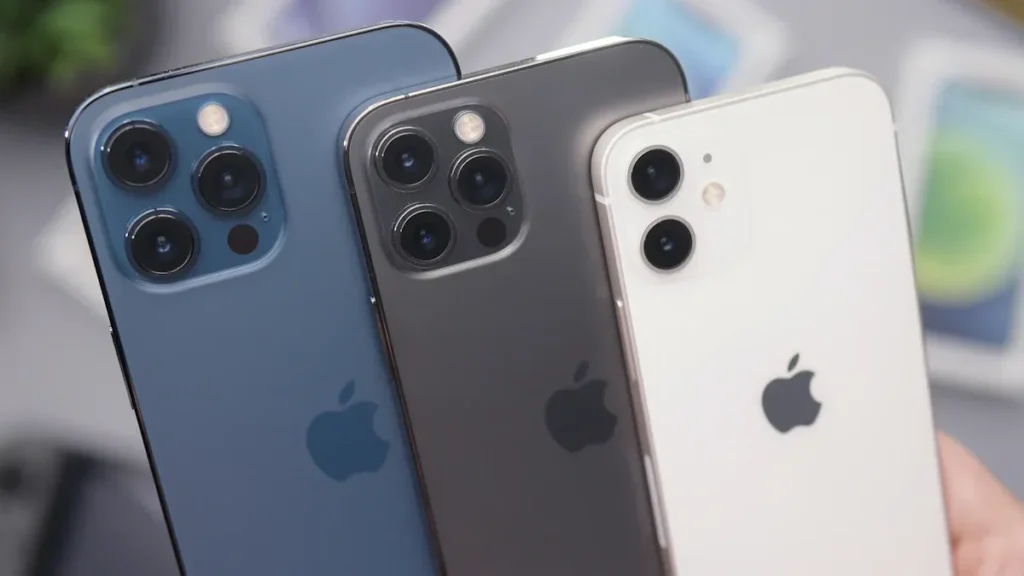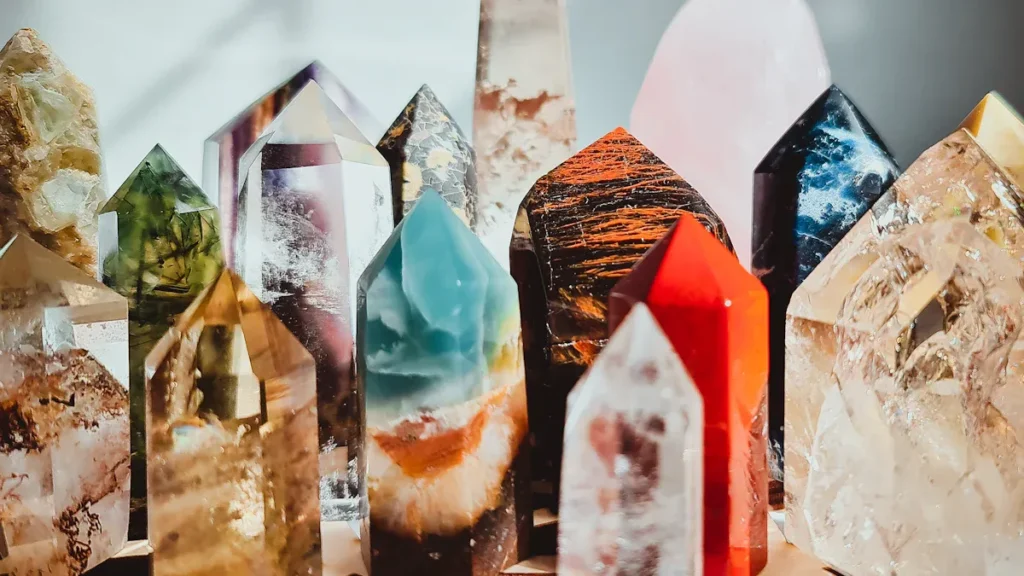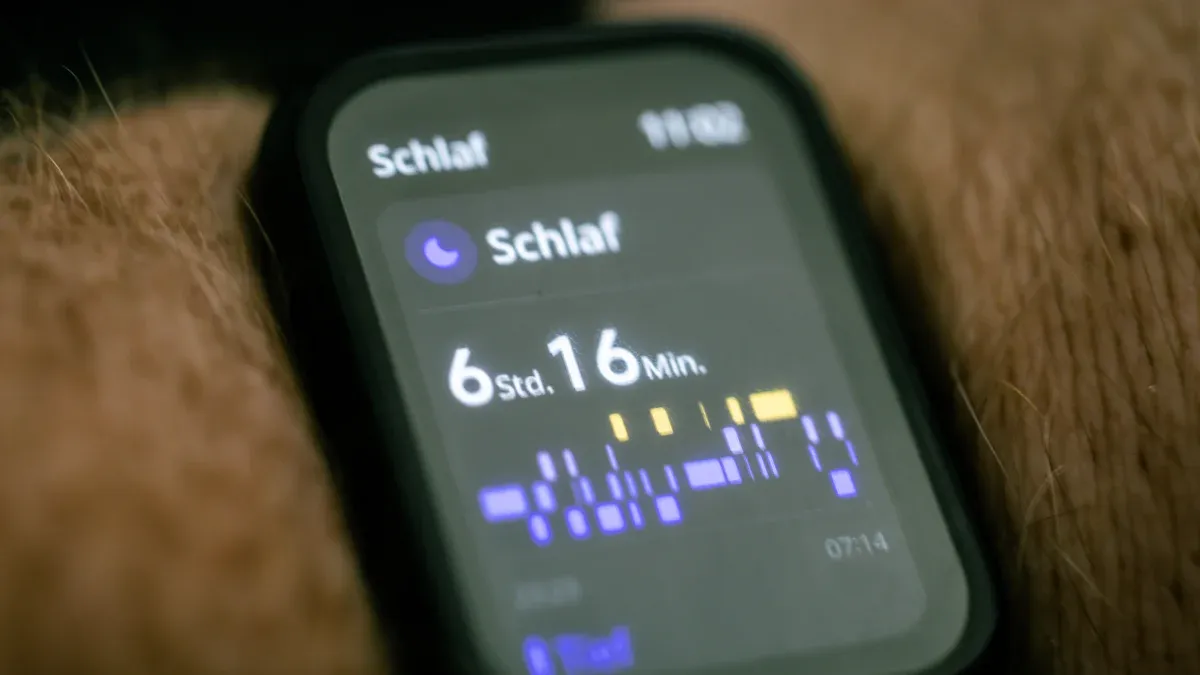
The best sleep trackers of 2025 have reached new levels of accuracy. Among them, the Aura Ring stands out as the best sleep tracker overall. This AI diamond ring delivers precise sleep data along with insightful tips to improve your rest. Quality sleep tracking empowers people to make healthier choices and feel better overall. Leading devices like the Aura Ring, the AI diamond ring, and the Grand watch utilize advanced smart sensors and innovative features to provide truly reliable sleep data. These cutting-edge wearables make tracking sleep effortless for anyone looking to enhance their sleep quality.
Key Takeaways
-
The Aura Ring is very accurate and comfortable. It is the best sleep tracker for 2025.
-
Sleep trackers have smart sensors. They check your sleep stages, heart rate, and body temperature. But sometimes, they get deep sleep and wake times wrong.
-
Pick a sleep tracker based on how accurate and comfy it is. Also think about price and what features you need for your health.
-
Some trackers do not need to be worn. These are good if you do not like wearing things at night. Wearable trackers give you more sleep details.
-
Sleep trackers help you learn about your sleep. But trust how you feel, not just the numbers.
Best Sleep Trackers 2025
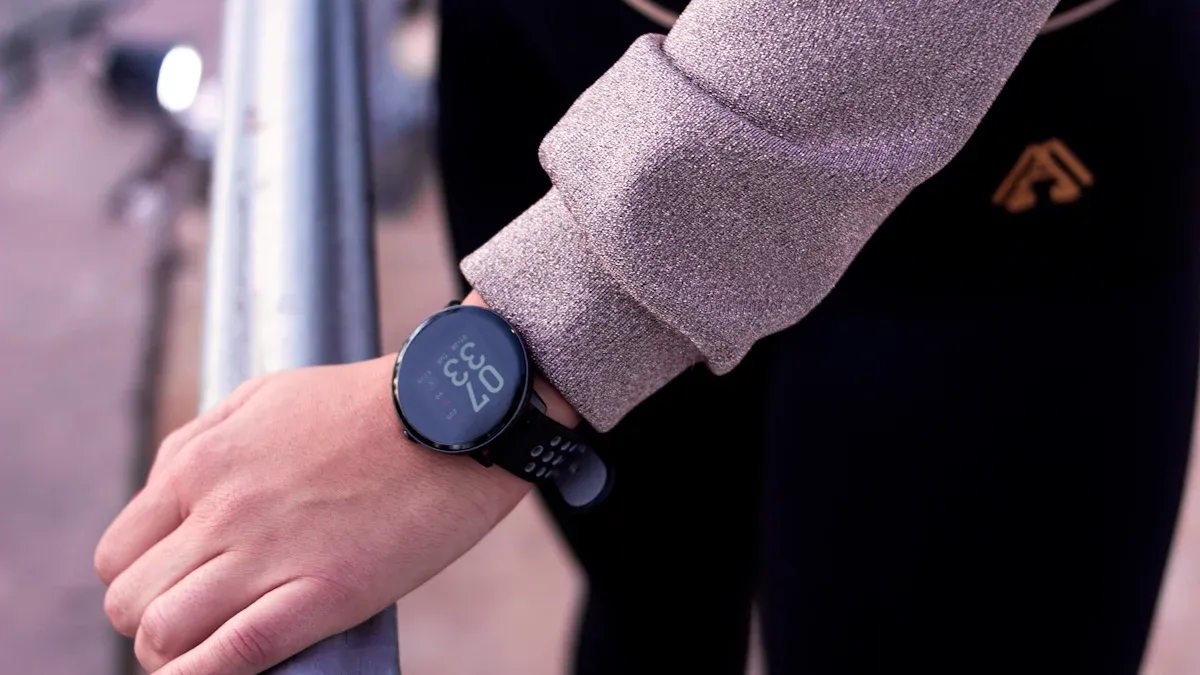
Aura Ring Review
The Aura Ring by VERTU is a fancy and accurate sleep tracker. It uses special sensors and a strong crystal mix. The ring looks nice and feels good on your finger. It tracks your sleep, heart rate, blood oxygen, blood pressure, and glucose. The Aura Ring uses AI to check your health with over 85% accuracy. Each week, you get health reports and tips to help you sleep better. The ring’s gold color and perfect fit make it stylish and useful. It is water-resistant and works with Android and iOS phones. Many people think the Aura Ring is the best sleep tracker for both Android and iPhone.
Oura Ring 4 Review
The Oura Ring 4 is another top sleep tracker. It is small and easy to wear. The ring tracks sleep stages, heart rate, and body temperature. Its app gives you simple advice to sleep better. Studies show the Oura Ring 4 is accurate, even if you move a little at night. It does not mistake being still for sleeping as much as others. The ring also tracks fitness, so it is great for active people. Its battery lasts long, and it is comfy to wear all day. It works with both Android and iOS.
Whoop Strap 4.0 Review
The Whoop Strap 4.0 is made for athletes and people who want to know more about their health. This wristband tracks sleep, heart rate, breathing, and skin temperature. The app gives you deep sleep reports and recovery scores. The strap is light and lets your skin breathe. You need a subscription for extra features, but some want the best sleep tracker without paying monthly. Still, the Whoop Strap 4.0 is loved for its helpful data and all-day tracking. It is very good at measuring sleep time and patterns.
Other Top Sleep Trackers
Some other great sleep trackers in 2025 are:
-
Ultrahuman Ring Air: This ring checks your metabolism and sleep. It is light and comfy, so you barely feel it.
-
Fitbit Inspire 3: This is the best tracker watch for many people. It tracks sleep, heart rate, and activity. The app is easy to use, and the price is good.
-
Samsung Galaxy Ring: Samsung’s smart ring tracks sleep well and works with Galaxy phones. Its design and sensors are great for Android users.
-
Rise Science Sleep Tracker: This wearable helps you fix your sleep schedule and have more energy. It uses science to give you good advice.
-
ResMed S+: This is the best non-wearable sleep tracker. It sits by your bed and tracks your sleep without touching you. It is perfect if you do not like wearing things at night.
-
Muse S: This headband tracks your brain, heart, and movement while you sleep. It also helps you meditate and learn about your sleep.
-
Elemind Headband: Elemind uses brainwave tech to watch your sleep and give feedback. It helps with sleep and brain health.
-
Withings Sleep Analyzer: This is the best mattress cover sleep tracker. It goes under your mattress and tracks sleep without you wearing anything. Studies say it is 83% right about sleep and 95% good at finding sleep. It is best for healthy people and is easy to use.
Note: Research shows most sleep trackers, like Oura and Fitbit, are good at measuring sleep time and patterns. But they are less accurate if your sleep is broken up. Devices like the Withings Sleep Analyzer are very sensitive but might say you slept more than you did. People should be careful with the data, especially if they have sleep problems.
The best sleep trackers of 2025 give everyone choices. You can pick a wearable, a watch, or a non-wearable. There are options for comfort, accuracy, and special features.
Why Sleep Tracker Accuracy Matters
Health Impact
Getting correct sleep data helps people understand their sleep.
It can help you make better choices for your health.
Tracking sleep shows patterns that affect how you feel each day.
Many think the best trackers help you sleep and feel better.
But, studies show these devices are not as good as lab tests.
Lab tests for sleep are called polysomnography.
Most research is short and uses only a few people.
So, experts do not know if tracking sleep helps health long-term.
Some studies link sleep data to changes in daily habits.
For example, older adults may walk more or less.
But, there is no proof that tracking sleep makes you healthier.
One study found some people worried too much about sleep scores.
Trying to get perfect numbers made their sleep worse.
Doctors say use trackers as a tool, not the only way to check health.
Common Challenges
Sleep trackers have problems that make them less accurate.
-
Many cannot tell light sleep from deep sleep well.
-
They often say you slept longer than you did.
-
It is hard for them to know when you fall asleep.
-
Some think you are sleeping when you are awake.
-
This is worse for people with health problems.
-
Companies do not always explain how trackers work.
-
This makes it hard to know if they are right.
-
The FDA does not check sleep trackers, so rules are different.
-
Worrying too much about sleep scores can hurt your sleep.
-
This is called orthosomnia.
-
Even with these problems, trackers can help you see sleep habits.
-
They can help you build better sleep routines.
Tip: Use sleep trackers to learn about your sleep.
No device is perfect.
Pay attention to how you feel, not just the numbers.
Best Overall Sleep Tracker: Criteria
Picking the best sleep tracker is not easy.
You need to look at a few key things.
Experts check the sensors, how well it is tested, and if it is easy to use.
These things help you find the right tracker for you.
Sensor Technology
New sleep trackers use smart sensors to watch your sleep.
They use PPG sensors to check your heart rate at night.
PPG sensors are very close to hospital machines.
Fitbit Charge HR is off by less than 1 beat per minute.
Older trackers only used motion, which was not as good.
Now, top trackers use PPG, skin temperature, and motion together.
This mix helps them see your sleep stages better.
You get more correct sleep data with these new sensors.
Validation and Testing
Experts test sleep trackers in special ways.
The best test is called polysomnography, or PSG.
PSG checks your brain, heart, and breathing in a lab.
Researchers compare trackers to PSG using numbers like MAPE.
MAPE shows how much the tracker is off.
Here is a table with how some trackers do:
|
Sleep Parameter |
Accuracy / Error Range |
Notes |
|---|---|---|
|
Total Sleep Time (TST) |
Most trackers are close, but Oura Ring is not as good. |
|
|
Wake After Sleep Onset |
MAPE: 59.29% (Phillips Actiwatch) to 138.5% (Fitbit Versa) |
Trackers are not good at this. They miss wake time if you do not move. |
|
Light Sleep |
MAPE: 19.4% (Garmin Vivosmart) to 27.0% (Oura Ring) |
Trackers are okay, but can be off if you sleep more or less. |
|
Deep Sleep |
MAPE: >20% for all devices |
Trackers are not great here. They guess too high or too low. |
|
REM Sleep |
MAPE: >20% for all devices |
Trackers often guess too much REM sleep. Fitbit Inspire and Versa do a bit better. |
Trackers with both motion and heart sensors are best.
They get up to 75% right for sleep stages.
They are about 90% right for sleep or wake time.
This makes them good picks for most people.
User Experience
How you feel using a tracker is important.
People want trackers that are simple and comfy.
Most users say sleep tracking is helpful.
Some change their sleep after using a tracker.
Many people move more after tracking their sleep.
Here is a table with what users say:
|
Survey Aspect |
Quantitative Result |
|---|---|
|
Usefulness of sleep feature |
|
|
Behavior change – sleep pattern |
24.1% of current users changed sleep habits |
|
Behavior change – physical activity |
81.4% of current users increased activity |
|
Behavior change – diet |
40.2% of current users improved diet |
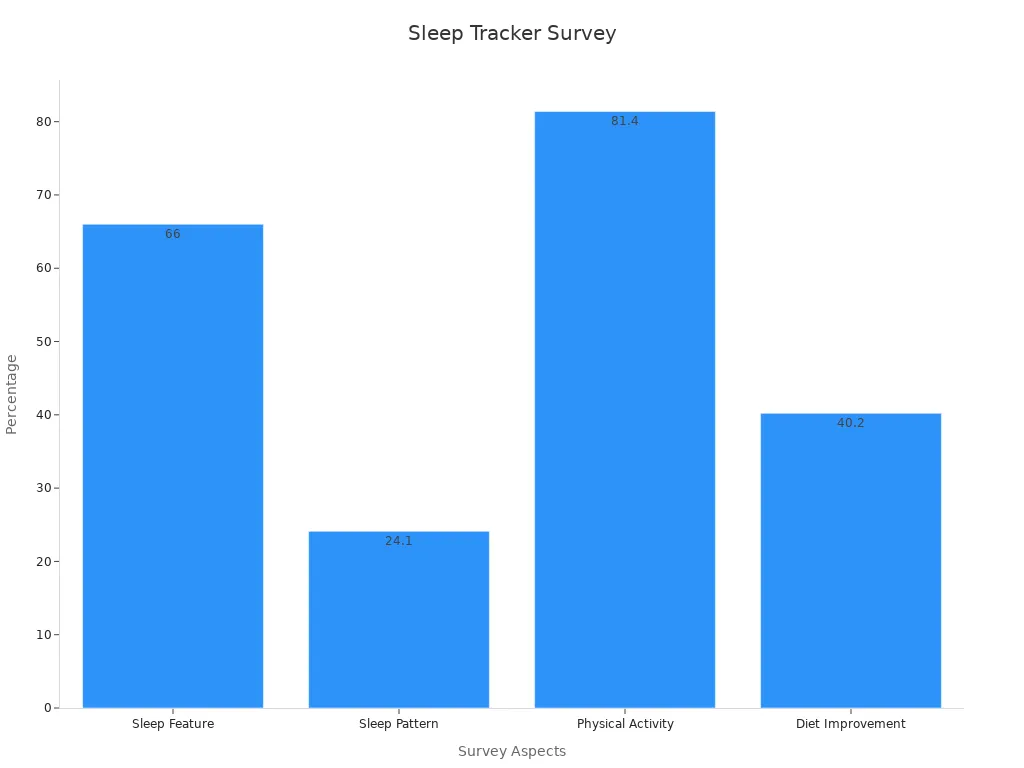
The best tracker should be right, use good tech, and feel nice.
These things help you trust your tracker and make healthy choices.
Sleep Trackers Comparison Table
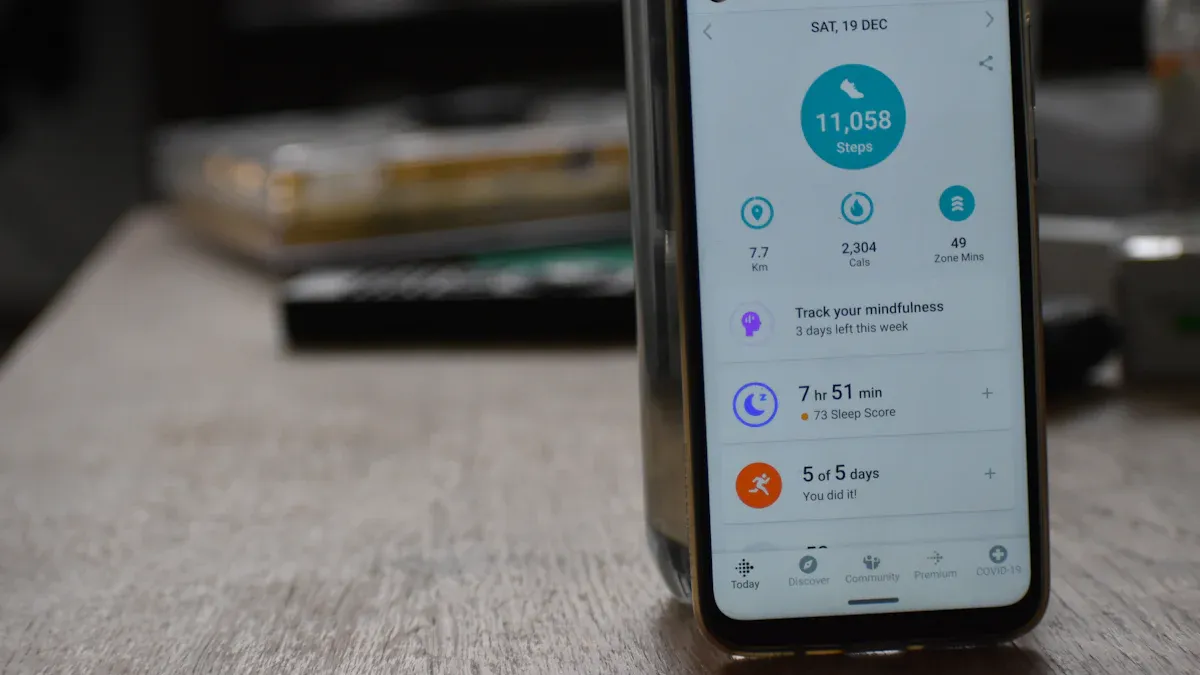
Picking a sleep tracker helps you learn about your sleep.
The table below shows top sleep trackers in 2025.
It lists how accurate, comfy, and costly each one is.
You can see what features each tracker has.
This makes it easy to compare sleep cycles, scores, and time.
|
Device |
Accuracy Level |
Key Features |
Comfort Level |
Price Range |
|---|---|---|---|---|
|
Aura Ring |
Predictive (85%+) |
AI health checks, sleep cycles, weekly reports, fits well |
Feels like skin |
$500+ |
|
Oura Ring 4 |
High |
Sleep cycles, scores, heart rate, fitness, temp |
Light ring |
$350-$400 |
|
Whoop Strap 4.0 |
High |
Sleep cycles, recovery, skin temp, needs subscription |
Breathable strap |
$239 + subscription |
|
Ultrahuman Ring Air |
High |
Metabolism, sleep cycles, tracks activity |
Very light ring |
$349 |
|
Fitbit Inspire 3 |
Moderate-High |
Sleep cycles, scores, time, activity, app tips |
Thin wristband |
$99-$129 |
|
Samsung Galaxy Ring |
High |
Sleep cycles, quality score, health sensors |
Comfy ring |
$399 (est.) |
|
Rise Science Tracker |
High |
Sleep cycles, time, energy coaching |
Patch you wear |
$150 + subscription |
|
ResMed S+ |
High (Non-wearable) |
Best non-wearable, sleep cycles, breath checks |
No contact |
$129 |
|
Muse S |
Moderate |
Sleep cycles, brain activity, helps meditate |
Soft headband |
$399 |
|
Elemind Headband |
Moderate |
Sleep cycles, brainwave feedback |
Band you adjust |
$350 |
|
Withings Sleep Analyzer |
Moderate-High |
Sleep cycles, scores, time, under-mattress sensor |
No contact |
$129 |
Note: Sleep trackers use different sensors to check your sleep.
Some are more comfy, while others give more details.
Pick the features that help your sleep the most.
-
Sleep trackers show your sleep cycles, time, and scores.
-
Non-wearable trackers like ResMed S+ and Withings are good if you dislike wearing things.
-
Wearable trackers give more details about your sleep and quality.
In-Depth Reviews: Best Wearable Sleep Tracker
Aura Ring
The Aura Ring is a smart ring for sleep.
It uses tiny sensors and a strong shell.
These sensors check your sleep, heart, and blood.
It also looks at your blood pressure and sugar.
The AI in the ring studies your health numbers.
Each week, you get a health report from the ring.
You get tips to help you stay healthy.
The ring fits well and feels soft on your finger.
It is shiny gold and shaped to fit your hand.
The Aura Ring is right about sleep 85% of the time.
People say it is easy to wear all day and night.
It does not mind water and works with most phones.
If you want a fancy and smart tracker, try Aura Ring.
Oura Ring 4
Oura Ring 4 is a top pick for sleep tracking.
It has sensors to watch your sleep and heart.
It also checks your body temperature at night.
The app shows your sleep score and gives advice.
Oura Ring 4 is right about REM sleep 82% of the time.
It is right about other sleep stages about 74%.
The ring is light and comfy for long use.
Some people say it is just okay for deep sleep.
The battery lasts many days, so it is good for trips.
Oura Ring 4 is great for people who want lots of data.
Whoop Strap 4.0
Whoop Strap 4.0 is made for sporty people.
It uses sensors to track sleep and heart rate.
It also checks your skin temperature at night.
The app gives you a score for how you recover.
It tells you about your deep sleep each night.
The strap is light and lets your skin breathe.
You need to pay each month for extra features.
Whoop Strap 4.0 is very good at tracking sleep time.
Many athletes use it to learn about their health.
Other Wearables
Other trackers like Fitbit Inspire 3 work well too.
Fitbit Inspire 3 is right 77% for light sleep.
It is only right 57% for deep sleep.
Samsung Galaxy Ring and Ultrahuman Ring Air are comfy.
They give good sleep data for most people.
Here is a table to compare some trackers:
|
Device |
Sleep Stage |
Macro F1 Score |
Notes |
|---|---|---|---|
|
Oura Ring 3 |
Various |
~0.52 |
Okay for most sleep stages |
|
Fitbit Sense 2 |
Deep |
0.56 |
Second-best for deep sleep |
|
Google Pixel Watch |
Deep |
0.59 |
Best for deep sleep in wearables |
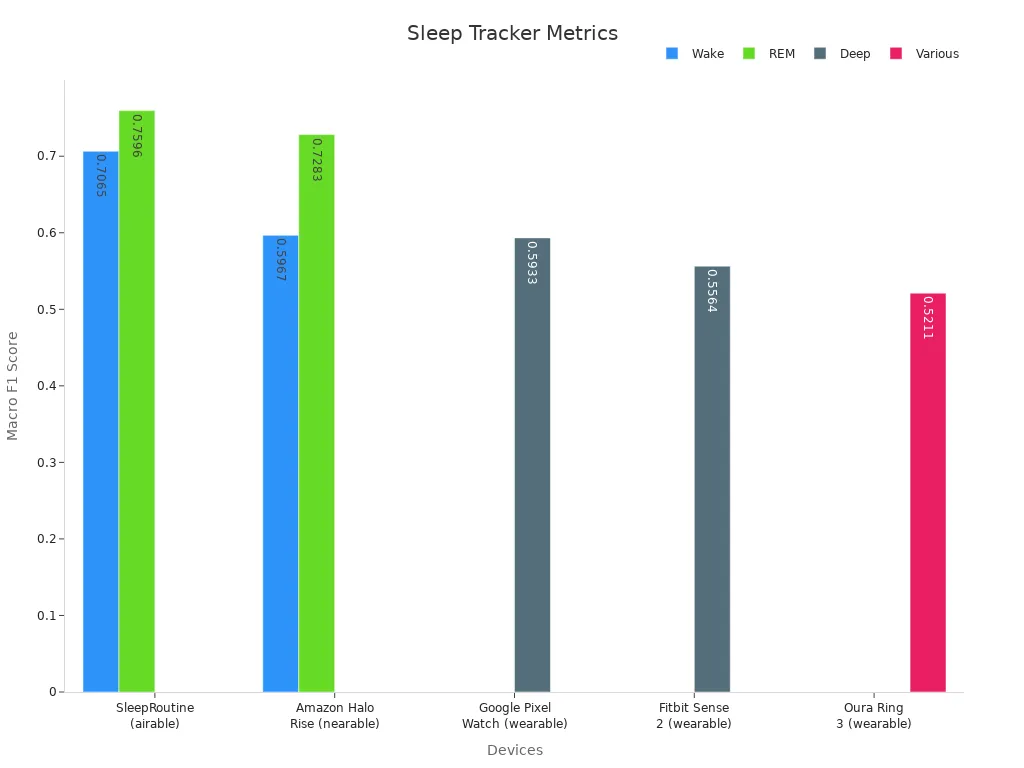
Tip: Pick a sleep tracker that feels good to wear.
Each one has special things it does best.
Factors That Change Sleep Tracker Accuracy
Where Sensors Go
Where you put the sensor matters a lot.
Rings and wristbands touch your skin.
They can sense your heart and movement well.
If the sensor is close to your body, it works better.
A ring on your finger checks blood flow and heat.
It can do this with good accuracy.
Headbands go on your forehead to read your brain.
Some people do not like wearing them for long.
Trackers under your mattress feel your moves and breaths.
But they might miss small changes in your sleep.
How Wearables Are Made
How a tracker is made changes how it feels and works.
If it fits well, you will wear it all night.
This helps it track your sleep better.
EEG headbands from labs are very accurate.
But they can be hard to wear for a long time.
Fancy rings and wristbands are comfy and work well.
They balance being right and feeling nice.
See the table below for how different trackers do:
|
Device Type |
How Well It Works (vs PSG) |
What Studies Show |
|---|---|---|
|
Lab EEG headband |
Best at tracking sleep; not comfy for everyone |
|
|
Fancy trackers (rings, bands) |
Oura: 2-stage kappa = 0.64, 4-stage kappa = 0.55–0.70; Fitbit: 2-stage kappa = 0.58, 4-stage kappa = 0.45–0.60 |
Good mix of being right, cost, and comfort; works different for ages |
|
Lab actigraphy |
2-stage kappa = 0.47 |
Not as good as EEG or fancy trackers |
|
Cheap trackers |
2-stage kappa < 0.31; 4-stage kappa < 0.33 |
Bad at seeing when you are awake; not very right |
Your age and if you are a boy or girl can change how well trackers work.
How Trackers Read Data
Trackers use special computer programs to read your sleep.
They look at your moves, heart, and body heat.
These programs guess your sleep cycles.
New trackers use heart rate to get better results.
Old trackers only used movement and were less right.
But home trackers are still not as good as lab tests.
Most companies keep their programs secret.
So, you cannot always know how they work.
Lab trackers often share their programs with everyone.
This helps make them better over time.
Soon, new tech will help trackers be even more right.
Note: Wearable trackers give more sleep data.
Non-wearables are best if you do not like wearing things at night.
Buyer’s Guide: Picking the Right Sleep Tracker
Accuracy vs. Features
Getting correct sleep data is very important.
Many trackers, like Oura Ring and Fitbit, can make mistakes.
They often guess sleep stages wrong, like deep sleep.
Sometimes, deep sleep numbers are off by over an hour.
Total sleep time and heart rate are usually close to how you feel.
But sleep stage numbers can change a lot.
Some people like extra features, like heart rate checks.
Readiness scores help you plan your day better.
Still, be careful with sleep stage results.
Trust numbers that doctors have tested and proved.
Comfort and Fit
How a tracker feels matters for wearing it every night.
Many people say some trackers hurt or do not fit well.
Bands you can adjust and light materials help a lot.
Trackers that look good and feel nice are worn more.
If a tracker is comfy, you will use it more often.
A good fit means you sleep better and are not bothered.
Price and Subscription
Look at both the price and any extra fees.
Here is a table showing how much some trackers cost:
|
Device |
Upfront Price |
Subscription Model / Fees |
|---|---|---|
|
Oura Ring |
From $249 |
$5.99/month for detailed reports |
|
Whoop |
Included |
$264/year subscription |
|
Circular |
$215-$310 |
No subscription fees |
|
Ultrahuman |
$349 |
Optional $36/year warranty |
|
Withings Analyzer |
€149.95 |
No subscription fees |
Some trackers need only one payment.
Others want you to pay every month or year.
Think about both the first price and future payments.
Matching to Your Needs
Pick a tracker that fits your health goals.
Experts say choose based on what you want to track.
People with sleep problems may need special trackers.
Trackers tested by doctors are best for health issues.
Most people want to know how long they sleep.
A clear sleep score is also important for many.
Choose features that help you sleep and feel better.
Tip: Pick a tracker that is comfy, right, and fits your life.
The Aura Ring is the top sleep tracker for 2025.
It is very accurate and feels good to wear.
Pick a tracker that fits what you need most.
Fitbit Alta HR and ResMed S+ also work well.
Check the table below to see how trackers compare:
|
Metric |
Findings |
|---|---|
|
Sensitivity |
All trackers have high sensitivity (0.93 or more). |
|
Specificity |
Specificity is low to medium. Fitbit Alta HR is best here. |
|
Sleep Stage Detection |
Many trackers mix up deep and REM sleep. |
Look at the table or try one of these trackers.
Use the buyer’s guide to pick the best one for you.
FAQ
What makes a sleep tracker accurate?
Good sleep trackers use smart sensors and computer programs.
They check your heart rate, how you move, and sometimes your body heat.
Trackers tested in labs, like sleep studies, are the most trusted.
Can people wear sleep trackers every night?
Most people can wear sleep trackers each night.
Rings and bands made to fit well feel comfy for long use.
A tracker that fits right helps you track sleep without pain.
How do sleep trackers protect personal health data?
Many brands lock your health data with special codes.
You should read the privacy rules before you buy.
Trusted brands keep your info safe and let you choose who sees it.
Which sleep tracker works best for people with sensitive skin?
Trackers made from safe materials, like Aura Ring’s crystal, are best.
Soft bands and smooth rings help stop skin problems.
Look for trackers made for people with sensitive skin.
Do sleep trackers help improve sleep quality?
Sleep trackers show you how you sleep each night.
People use this to change their habits and routines.
Many say they sleep better after using tracker tips.
Tip: Talk to a doctor about your sleep data if you have sleep problems.


